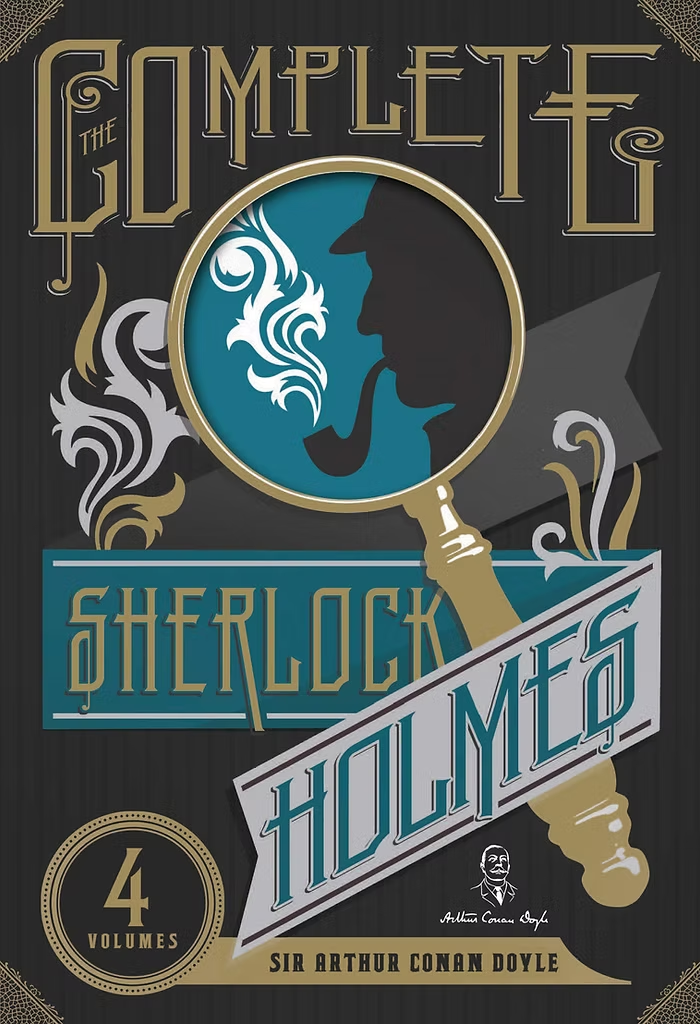Reading for fun is important! Here are some of my favorites.
Most of my writing on books in this forum revolves around non-fiction books that explicitly help me be a better leader, manager, Airman, and father. That said, I never underestimate the value of reading fiction as a form of pure entertainment! The books in this list aren’t objectively the greatest books ever written or even the greatest books I’ve ever read, but they are each significant to me in some way and have informed who I am and who I want to be.
#5. Sherlock Holmes.
First, I must admit that I cannot tell you a single particular Sherlock Holmes book that I preferred over the others. All of the stories were similar, well-written, remarkably progressive for their time, and a lot of fun. The titular character is an absolute intellectual delight across all of these books, as well as nearly every depiction I’ve seen in film and television. I first started reading Sir Arthur Conan Doyle’s stories in 2008 when I realized the sheer volume of fantastic literature that fell into the public domain and could be downloaded for free. I ended up downloading almost everything Doyle had ever written and read it over the next two years on a 2007 iPod Touch (because I wasn’t cool enough to carry a Kindle, yet). After I started deploying overseas routinely in 2009, eBooks became an absolute necessity and helped ease the “groundhogs day” effect of mundane deployed life where you experience 23 hours and 55 minutes of boredom punctuated by the most exhilarating five minutes you’ll ever imagine. My other favorite writers you’ll find in the public domain are Jules Verne and H.G. Wells if only to see what science fiction imagined our past would look like over a century ago. Speaking of science fiction…
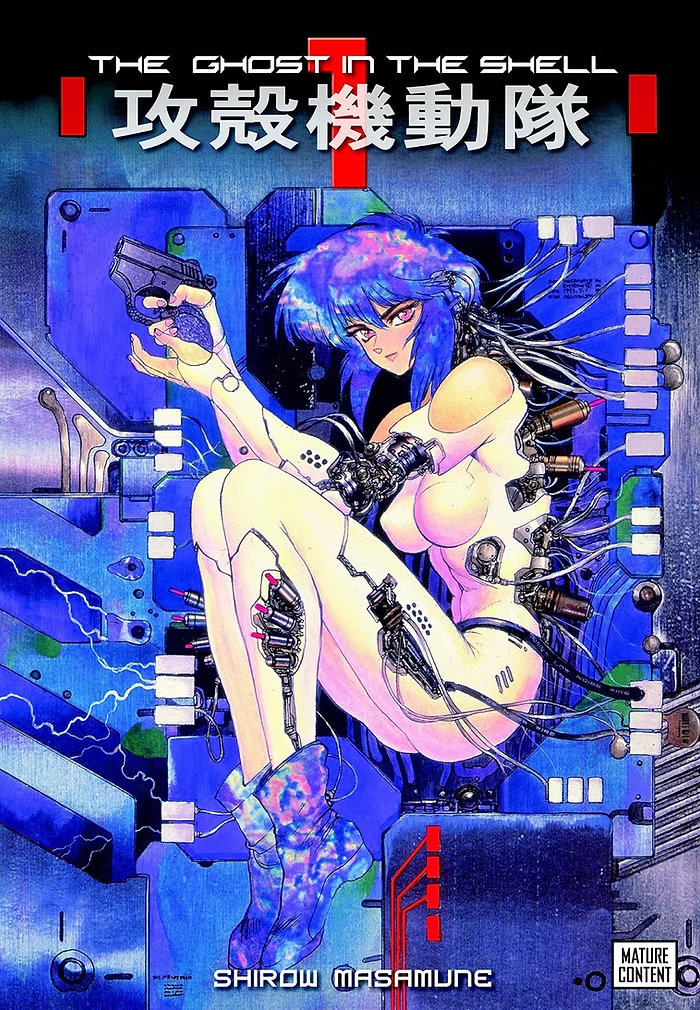
#4. The Ghost in the Shell.
I know, it’s a graphic novel, but the literature snobs out there can stuff it. This is my blog, so I get to decide what’s cool. Sometimes, I enjoy pictures with my literature, and writer/artist Masamune Shirow produced some top-notch examples of both with The Ghost in the Shell. This particular story has been retold multiple times over across numerous movies and television series, but the original 1989-1990 manga still tells it best. Shirow lured me in with a fun action-filled story complete with cyborgs, mechs, and counter-terrorism, but by the end left me questioning the relationship between humankind and machine and what it means to be human in an increasingly artificial world. His art is highly-detailed and intensely technical, and his willingness to consider politics, diplomacy, and ethical issues inside of what could have just been another sci-fi cyborg story set it apart. While I could say that Shirow’s art style sometimes unnecessarily sexualizes (and even fetishizes) its female characters, it fits within the context of the story where the body is merely a mechanical tool that holds the brain (and ghost). More importantly, this was one of the first action-oriented stories I encountered where the main character was an incredibly badass woman, Motoko Kusanagi. At a young age, it completely defined what a woman could do in military and law enforcement roles and added an essential member to my board of directors.
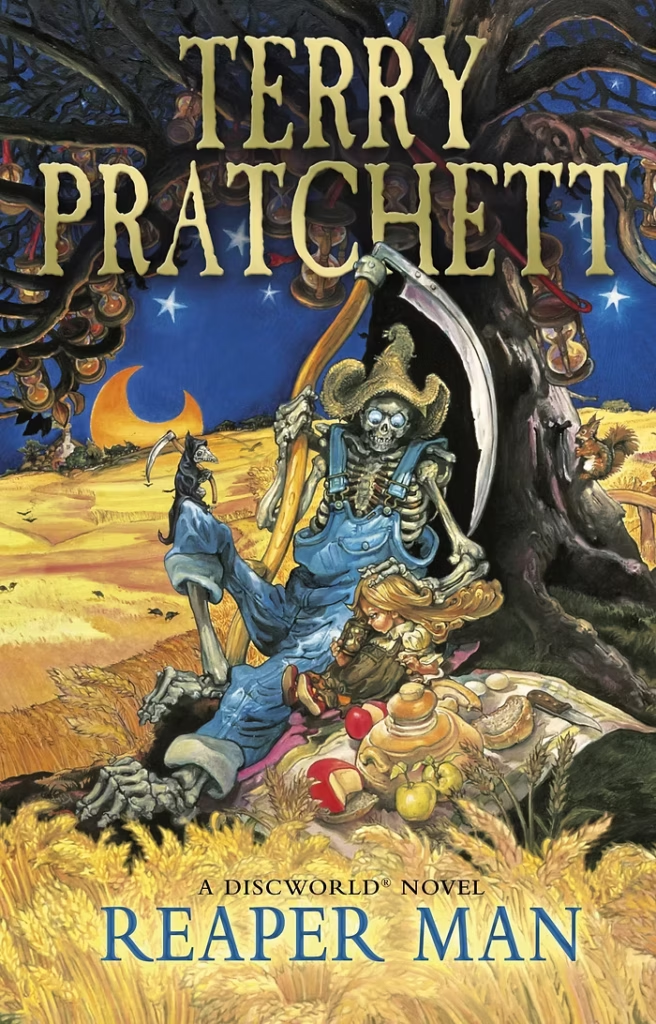
#3. Reaper Man.
For those of you not familiar with Terry Pratchett’s Novels of Discworld, imagine a flat frisbee-shaped world that rides on the backs of four elephants, which all stride endlessly on the shell of the Great A’Tuin, or “world turtle,” who swims across space. That crazy idea sets the stage for a series of often unconnected fantasy stories and recurring characters across an astounding 47 books. Purchased as a grocery store paperback, the 1991 classic, Reaper Man (his 11th book in the series) was my introduction and still favorite. Pratchett was very much a British humorist whose writing style was reminiscent of Douglas Adams (The Hitchhiker’s Guide to the Galaxy) and Reaper Man introduces us to Death (AKA the Grim Reaper) as a uniquely curious fellow who one day decides that it’s time to retire for a bit from dealing with people who have reached the end of their timer. If you’ve ever seen the 1998 film Meet Joe Black, you’ve got a taste for how Death curiously interacts with the world. The writing on this is absolutely delightful, laugh-out-loud funny, and I’ve since read almost every other of Pratchett’s books.
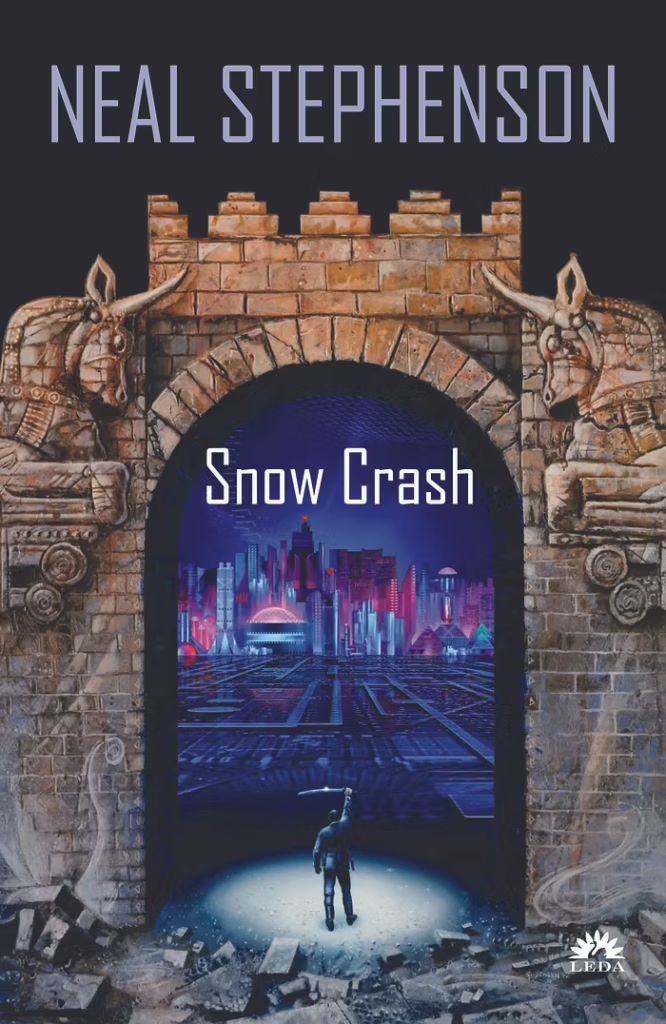
#2. Snow Crash.
Neal Stephenson erupted into a lot of folks reading lists with the 1992 cyberpunk classic, Snow Crash. He shamelessly pillages a broad number of sci-fi and cyberpunk tropes as the cheekily-named Hiro Protagonist transitions from pizza delivery to saving the world from a religious organization bent on hacking the world’s population using a neurolinguistic attack based on ancient Sumerian. Like any good sci-fi, Stephenson flirts with predicting the future. Some predictions (hopefully) miss the mark, like the dominance of corporate-held sovereign enclaves. Other predictions are shockingly close, such as the use of the internet (metaverse, in this case) to host virtual worlds populated by digital avatars. In all cases, this fast-moving story rips through wild ideas faster than a cocaine-fueled jackrabbit, with pacing that will leave you finishing breathless at 3:00 A.M. wondering where the last eight hours just went. This also serves as a phenomenal introduction to Stephenson’s other outstanding sci-fi (and historical sci-fi) works like The Diamond Age, Cryptonomicon, and The Baroque Cycle series, and Anathem.
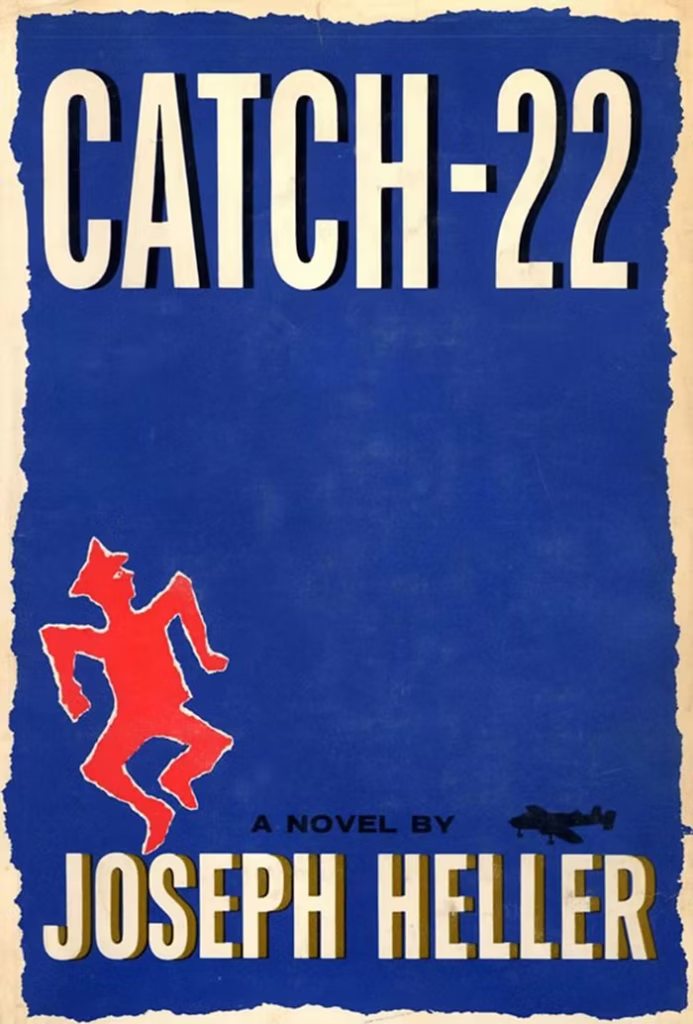
#1. Catch-22.
For some context, I was setting out for my ninth deployment overseas with unsigned re-enlistment papers in hand. I was sitting at approximately ten years in service and going back and forth about whether to sign those papers. In the US military, serving twenty years guarantees a lifelong pension and entitlement to certain benefits; once you pass the ten-year mark and that retirement goal is getting close, it’s much harder to walk away. I was bitter and a salty at some of the absurdities of military life and our foreign policy role and not entirely sure I could handle another ten years. As my flight into Afghanistan touched down, I finished reading Joseph Heller’s Catch-22, and my mind was made up: I was re-enlisting.
Heller’s cynical work spoke to me as an Airman and an aviator, directly wrestling with the same issues that gave me such a pause at this significant career milestone. Some might take a different lesson from this, but I found it immeasurably comforting to realize that the paradoxical issues I saw weren’t new or unique; they were systemic and persistent. It’s not to say that we shouldn’t continue to attempt solving them, but I suddenly felt much better at everybody’s failure to succeed. It restored my faith in much of my leadership, knowing that the myriad of issues we faced weren’t merely the result of novel negligence or maliciousness. It was also significant because, unlike many popular war stories, this one openly embraced the fear inherent to this business. It gave me a lot more freedom to honestly grapple with my mental and emotional challenges. Since then, I’ve encouraged almost every fellow Airman that will listen to give this one a read.
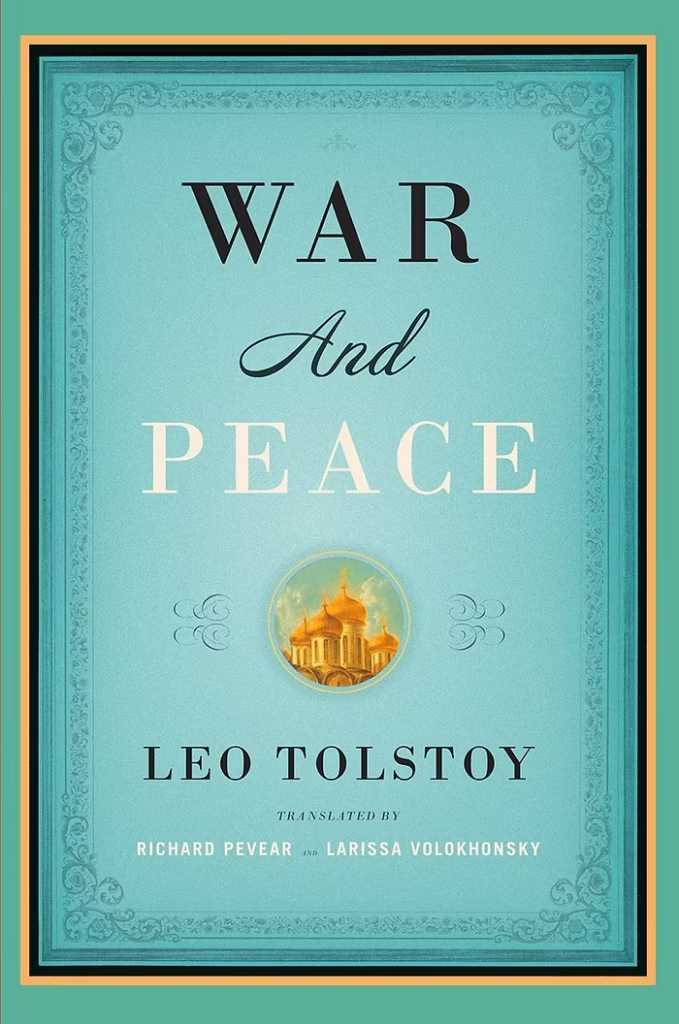
BONUS: War and Peace.
I know this is supposed to be a Top 5 list, but I have to throw Leo Tolstoy’s classic, War and Peace on here somewhere. This was another public domain book download, but I didn’t realize how staggeringly long it was until I started it. I’m not a fast reader, and this one took me the better part of a year to get through. Once I completed it, I immediately felt like an “Achievement Unlocked” banner appeared above my head. Following the lives of five Russian families through the Napoleonic wars was a fascinating ride, though not quite a novel.
Tolstoy’s most compelling writing comes in his critical evaluation of history, historians, and the people who truly influence the big moments. His deep criticism of grand strategy was also pervasive, as he rejects Carl von Clausewitz’s management of warfare as a series of static facts and figured to be manipulated like a chessboard while giving a passing nod to the so-called fog of war in his treatise, On War. Tolstoy instead embraced the fog of war as the chaotic standard of warfare that immediately replaces all well-crafted plans after the first shot, thus yielding greater weight to the unnamed hero who picked up the standard at the right moment and charged forth than to Napoleon and his field commanders. War and Peace is a fascinating and insightful book, but it’s hard to categorize, much less recommend on a list that’s about having fun.
Thanks for reading! Have you read any of the books on this list? Which ones did you love (or hate), and why? What books would you recommend to me based on this list?
